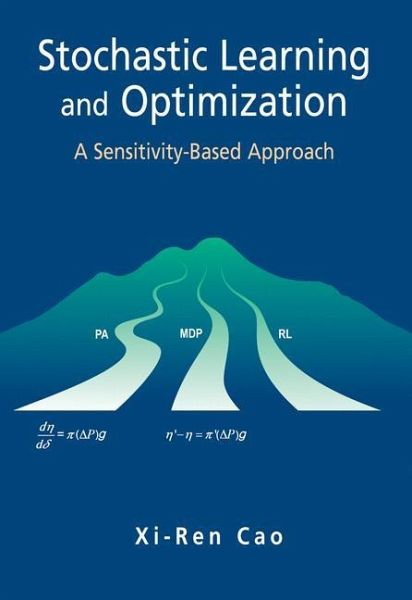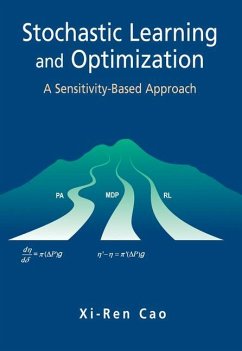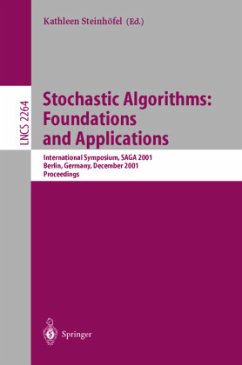
Stochastic Learning and Optimization
A Sensitivity-Based Approach
Versandkostenfrei!
Versandfertig in 6-10 Tagen
151,99 €
inkl. MwSt.
Weitere Ausgaben:

PAYBACK Punkte
76 °P sammeln!
Performance optimization is vital in the design and operation of modern engineering systems, including communications, manufacturing, robotics, and logistics. Most engineering systems are too complicated to model, or the system parameters cannot be easily identified, so learning techniques have to be applied.This is a multi-disciplinary area which has been attracting wide attention across many disciplines. Areas such as perturbation analysis (PA) in discrete event dynamic systems (DEDSs), Markov decision processes (MDPs) in operations research, reinforcement learning (RL) or neuro-dynamic prog...
Performance optimization is vital in the design and operation of modern engineering systems, including communications, manufacturing, robotics, and logistics. Most engineering systems are too complicated to model, or the system parameters cannot be easily identified, so learning techniques have to be applied.
This is a multi-disciplinary area which has been attracting wide attention across many disciplines. Areas such as perturbation analysis (PA) in discrete event dynamic systems (DEDSs), Markov decision processes (MDPs) in operations research, reinforcement learning (RL) or neuro-dynamic programming (NDP) in computer science, identification and adaptive control (I&AC) in control systems, share the common goal: to make the "best decision" to optimize system performance.
This book provides a unified framework based on a sensitivity point of view. It also introduces new approaches and proposes new research topics within this sensitivity-based framework.
This is a multi-disciplinary area which has been attracting wide attention across many disciplines. Areas such as perturbation analysis (PA) in discrete event dynamic systems (DEDSs), Markov decision processes (MDPs) in operations research, reinforcement learning (RL) or neuro-dynamic programming (NDP) in computer science, identification and adaptive control (I&AC) in control systems, share the common goal: to make the "best decision" to optimize system performance.
This book provides a unified framework based on a sensitivity point of view. It also introduces new approaches and proposes new research topics within this sensitivity-based framework.














